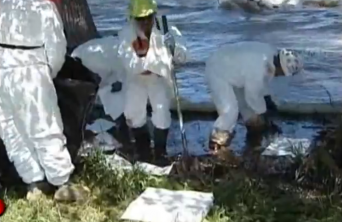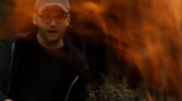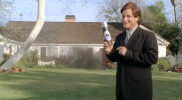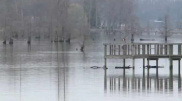DEVELOPING: Exxon Mobil Pipeline Ruptures In Montana's Yellowstone River
UPDATE:
Montana Gov. Brian Schweitzer is threatening a lawsuit against Exxon Mobil if cleanup promises are not met.
On July 8, Schweitzer held a meeting with community members, announcing his frustration with the oil company's response, reports Reuters. He told a crowd of 150 people that his office would "hold them liable in court" if Exxon's representatives do not cooperate with government officials.
"Montana is responsible for managing that river. There are damages and no one from Exxon has sidled up and offered us a check," he said.
Government officials present at the meeting said the damage to the ecosystem could be extensive. Contamination has spread over 240 miles of the Yellowstone River.
"This is a long-term problem," said Gary Hammond, supervisor of Billings' Montana Fish, Wildlife and Parks regional office.
Exxon, echoing language used by BP during oil spill cleanup in the Gulf of Mexico, maintains that it will "stay and make this right" in Montana. On July 9, Exxon Mobil submitted a draft cleanup plan to the Environmental Protection Agency, however few details have been made known.
Meanwhile, rising river conditions continue to complicate cleaning efforts. AP reports that it may be weeks until crews can travel to contaminated areas deep within the river's back channels.
Bob Gibson, a spokesman for Fish, Wildlife and Parks, told the Billings Gazette those inaccessible areas may be where oil is pooling and killing microscopic organisms essential to feeding the river's ecosystem.
"We haven't seen 99 percent of the riverbank yet. We can go to fishing access sites, but we can't go to any of the islands, the braided back channels, the shallow waters."
***
ORIGINAL STORY:
On July 1, an oil pipeline owned by Exxon Mobil ruptured 10 miles west of Billings, Mont., resulting in an estimated 1,000 barrels of oil spilled into the Yellowstone River.
Oil has coated some of the river's banks, with reports of found oil as far as 25 miles away from the initial rupture site.
Over the weekend, rising river conditions exacerbated cleanup efforts as surging currents pushed the oil further downstream and into harder to reach areas. Montana Gov. Brian Schweitzer urged the public to take initiative and participate in effective cleanup actions by calling in any oil they find.
"At seven miles per hour, some oil is already in North Dakota. That's a given," Schweitzer told the AP. "I'm asking everyone to get out there and report what you see on the river."
WATCH:
The New York Times revealed that this isn't the first time this portion of pipeline has had complications. In May, the line was shut down for one day because of concerns regarding its ability to withstand rough water conditions.
Rep. Edward Markey, the top Democrat on the House Natural Resources Committee, has called for investigative hearings on Exxon Mobil's spill, reports The Hill. He said this disaster could be indicative of larger pipeline problems.
“Exxon Mobil has turned parts of the Yellowstone River black with their spilled oil,” Markey said. “Just as BP was held to account for their accident in the Gulf of Mexico, Exxon Mobil should appear before Congress so that we can examine the holes in oil pipeline safety that led to this incident and how we might prevent another spill in the future.”
Government and Exxon Mobil officials met with the public on Tuesday to announce its cleanup strategy, reports The Billings Gazette. They announced that 360 personnel have traveled to the affected area to help with efforts, 200 of which are cleaning up the spill directly.
Gov. Schweitzer told the crowd that he is committed to resolving the spill.
"The cleanup is done when the state of Montana says it's done," said Schweitzer.
Some residents remain unsatisfied with the response. Mike Scott, a local goat farmer and environmental activist who attended the press conference, said that he and his wife were diagnosed with acute hydrocarbon exposure after the spill. He said the government needs to produce answers quickly because lives are at risk.
"I need to know what we've been exposed to. People are sick now," he told the Los Angeles Times.
Jerry Williams, another local farmer, told Reuters that oil washed across his property. He said that communication hasn't been clear.
"We get all our drinking water from our wells and for our animals," Williams said. "We don't know if we'll be able to use them since the river was high. All the groundwater, I assume, is probably contaminated. We just don't know."
Officials are continuing to investigate what caused the rupture.






